50% Off – Sale Ends Tomorrow
50% Off – Sale Ends Tonight
Now 50% Off for a Limited Time
Making First Sessions Great
How To Make Your First Session So Effective That Your Clients Leave Full Of Hope, Commitment To Change and Motivation To Do The Work

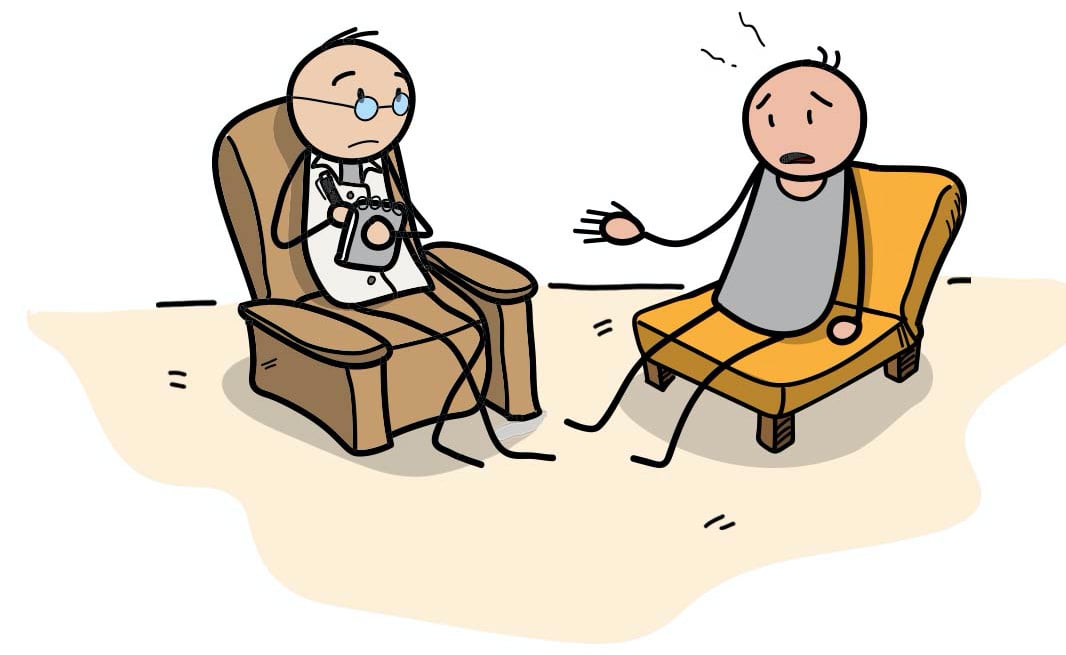 More than 20 percent of clients won’t come back for a second session.
More than 20 percent of clients won’t come back for a second session.
That’s why first sessions really matter.That first meeting with a new client can determine whether or not they continue with treatment.
So how do we make sure our first session is so powerful and so effective that our clients leave with hope, commitment and motivation to do the work?
We asked 17 top experts to tell us what they think about when approaching a first session. What are their goals? How do they start? How do they work with the challenges that first sessions present? What are the warning signs they look for?
They shared their insights and strategies – ones that you can apply to your work with clients today.
Successful Strategies to Make Your First Sessions Great

Planting Seeds for Success in the First Session
Lynn Lyons, LICSW Ron Siegel, PsyD
- One simple but effective pre-session communication that can prime your work for success
- How to have clients leave your first session brimming with hope and confidence
- One adjustment to your initial client assessment that can boost engagement and motivation

First Sessions with Challenging Clients
Marsha Linehan, PhD Ron Siegel, PsyD
Rick Hanson, PhD
- A first session compatibility check to gauge proper practitioner/client fit
- The crucial empathic connection that can defuse a client’s initial defensiveness
- One change to a behavior-modeling technique that can save your client from feeling criticized
- How to present feedback so the client doesn’t fall prey to harmful self-blame

How to Manage a Client’s Expectations for Treatment
Christine Padesky, PhD Rick Hanson, PhD
- An immediate way to remedy a new client’s unrealistic expectations for therapy
- One approach to address a client’s low motivation (and turn it into a more fruitful first session)

Strategies to Help a Client Feel at Ease in the First Session
Stephen Porges, PhD Kelly McGonigal, PhD
- The specific parts of your clinical environment that may be triggering your client’s defensiveness
- How white noise generators can actually drive up your client’s fear and arousal
- One way your voice can open the portal of presence and engagement with a new client

How to Foster Greater Client Disclosure for More Accurate Diagnoses
Shelly Harrell, PhD Ron Siegel, PsyD
- How to dilute the power dynamic in a first session so the client feels comfortable taking risks
- How to work with the hidden cultural factors that may be sabotaging your first session
- One simple question at the beginning and end of a first session that can lead to more accurate diagnoses

How to Address Common Warning Signs in the First Session
Ron Siegel, PsyD Zindel Segal, PhD
Rick Hanson, PhD
- Three warning signs that can derail a successful first session
- Why a client’s oversharing in a first session may signal a potential early dropout
- How to disarm the first sign that a client may be idealizing your work

Using Movement to Create a Successful First Session
Pat Ogden, PhD Kelly McGonigal, PhD
- One way to uncover and amplify a sense of hope in clients during their crucial first session
- An important reframe in the first session that can help increase a client’s agency in their healing
- One way to broaden a client’s “aspirational window” so they leave the first session with a sense of hope

Key Skills to Alleviate a New Client’s Feeling of Vulnerability
Dan Siegel, MD Kelly McGonigal, PhD
Richard Schwartz, PhD
- How to create the safety a client needs in a first session to avoid triggering their adaptive defense response
- Nine practitioner behaviors that can directly affect clinical outcomes
- How to fend off attacks from a client’s most vulnerable parts when they turn protective

How to Build Hope in the First Session
Bill O’Hanlon, LMFT Rick Hanson, PhD
- A counterintuitive way to immediately connect clients to feelings of hope and possibility
- How to expand a client’s capacity to see beyond their problem and into a better future
- A first session approach to help shift a client’s negative mindset

Strengthening a New Client’s Commitment to Therapy
Rick Hanson, PhD Kelly McGonigal, PhD
- The “three pile” approach to a first assessment that can reveal untapped opportunities for healing
- Two unconscious judgments when we first meet someone that can block a therapeutic connection
- Why your client’s issue may stem from a “scaling” problem (and how to boost their commitment to improve it)

How Your Opening Question Can Set the Tone for Success
Ellyn Bader, PhD Rick Hanson, PhD
- How to phrase your initial greeting so it becomes a litmus test of the client’s motivation
- A practical strategy to help clients self-assess problematic behavior (and boost accountability)
- How to transform a tension-filled first session with couples into a positive commitment to problem-solving
- How to help clients “buy in” to doing the important work in your treatment plan

Building a Strong Therapeutic Bond That Will Last Beyond the First Session
Bill O’Hanlon, LMFT Joan Borysenko, PhD
Kelly McGonigal, PhD
- How to connect a new client’s talents to beneficial therapeutic experiences
- The conversational shift that marks the exact moment a client is ready for change
- Two important questions at the end of a first session to verify you (and the client) are on the right track

Two Ways to Work with an Underlying Medical Issue in the First Session
Ron Siegel, PsyD Dan Siegel, MD
Joan Borysenko, PhD
- The important first step when a client’s issue may have an underlying medical problem
- A vital query to help pinpoint the exact way a client’s problem is keeping them stuck
- The five integral components of meaning to help shift a new client’s mindset about their experience
Register Here for $197 $97
and get 13 videos, audios, and transcripts, plus 3 bonuses
to help you work more effectively in a first session
3.5 CE/CME Credits or Clock Hours are available for purchase at checkout.
Click HERE to get information about CE/CME credits and clock hours as well as speaker disclosures
For This Short Course, We Brought Together Some of the Top Experts in the Field
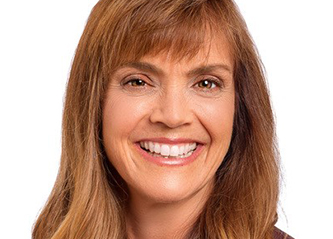
Lynn Lyons, LICSW
Author of Anxious Kids, Anxious Parents: 7 Ways to Stop the Worry Cycle and Raise Courageous & Independent Children, clinical social worker and psychotherapist specializing in anxiety in adults and children.
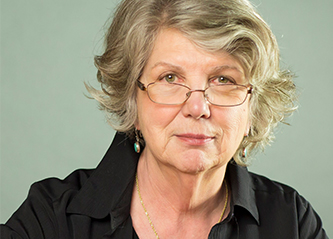
Marsha Linehan, PhD
Creator of Dialectical Behavior Therapy (DBT); Professor of Psychology, Adjunct Professor of Psychiatry and Behavioral Sciences at the University of Washington and Director of the Behavioral Research and Therapy Clinics.

Stephen Porges, PhD
Developer of Polyvagal Theory; Distinguished University Scientist at the Kinsey Institute at Indiana University Bloomington and Research Professor in the Department of Psychiatry at University of North Carolina Chapel Hill.
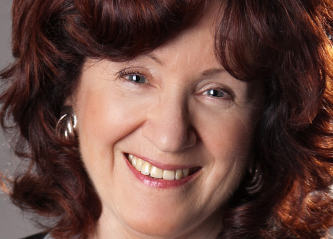
Sue Johnson, EdD
Creator of Emotionally Focused Therapy (EFT); Founder and Director of the International Centre for Excellence in Emotionally Focused Therapy.
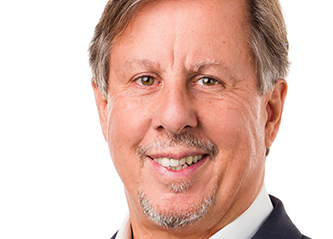
Richard Schwartz, PhD
Founder of Internal Family Systems (IFS) and The Center for Self Leadership; Author of Introduction to Internal Family Systems.

Pat Ogden, PhD
Pioneer in Somatic Psychology; Founder and Director of Sensorimotor Psychotherapy Institute (SPI); Co-founder of the Hakomi Institute; Author of Sensorimotor Psychotherapy: Interventions for Trauma and Attachment.
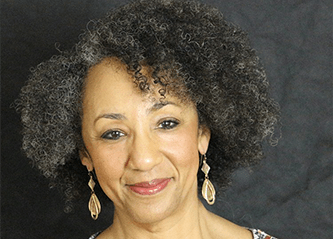
Shelly Harrell, PhD
Licensed psychologist specializing in multicultural and community psychology; Professor of Psychology in the Graduate School of Education at Pepperdine University.

Rick Hanson, PhD
Senior Fellow of the Greater Good Science Center at UC Berkeley; New York Times bestselling author of Hardwiring Happiness and Buddha’s Brain.

Joan Borysenko, PhD
Founder of Mind/Body Health Sciences LLC; Author of New York Times Bestseller Minding the Body, Mending the Mind.
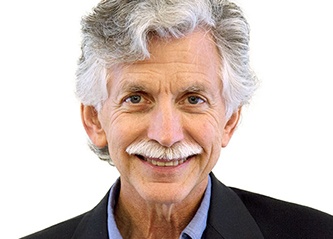
Ron Siegel, PsyD
Assistant Professor of Psychology, part time, Harvard Medical School; Author of The Mindfulness Solution: Everyday Practices for Everyday Problems and Sitting Together: Essential Skills for Mindfulness-Based Psychotherapy.

Kelly McGonigal, PhD
Health psychologist and lecturer at Stanford University; Author of The Upside of Stress: Why Stress Is Good for You and How to Get Good At It and The Willpower Instinct: How Self-Control Works, Why It Matters, and What You Can Do to Get More of It.

Bill O’Hanlon, LMFT
Co-developer of Solution-Oriented Therapy; Psychotherapist, speaker, and author of Do One Thing Different: Ten Simple Ways to Change Your Life.
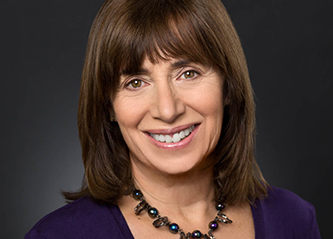
Ellyn Bader, PhD
Co-creator of The Developmental Model of Couples Therapy; Co-director of The Couples Institute.
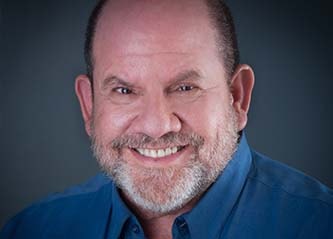
Stan Tatkin, PsyD, MFT
Founder of the PACT Training Institute and developer of a Psychobiological Approach to Couple Therapy (PACT).
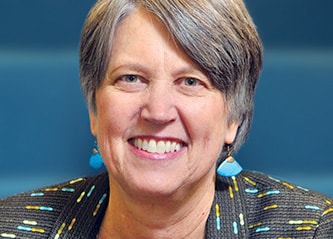
Christine Padesky, PhD
Co-founder of the Center for Cognitive Therapy in Huntington Beach, California; Co-creator of Strengths-Based CBT; Co-author of Mind Over Mood and Collaborative Case Conceptualization.
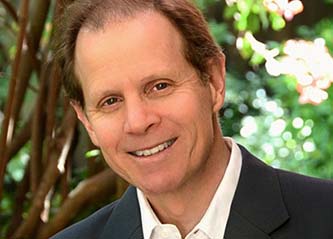
Dan Siegel, MD
Executive Director of the Mindsight Institute; Co-Director of UCLA’s Mindful Awareness Research Center; author of Mindsight: The New Science of Personal Transformation and The Mindful Therapist: A Clinician’s Guide to Mindsight and Neural Integration.
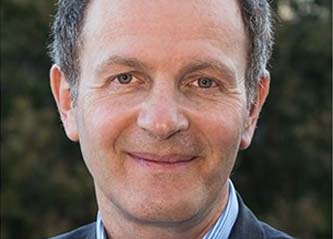
Zindel Segal, PhD
A founder of Mindfulness-Based Cognitive Therapy (MBCT); Professor of Psychology at the University of Toronto.
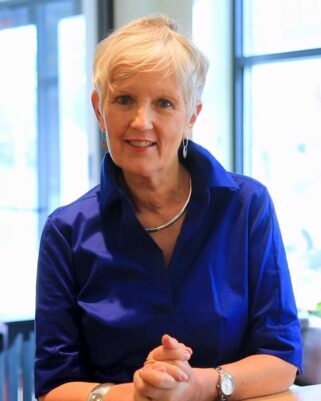
Course Director
Ruth Buczynski, PhD
Here's What You'll Get:
Everything is yours to keep forever in your professional library
|
|
Downloadable videos so you can watch at your convenience, on any device |
|
|
Audio recordings you can download and listen to at home, in the car, at the gym or wherever you like |
|
|
Professionally-formatted transcripts of the sessions, to make review and action simple |
|
|
Two downloadable bonuses to help you work more effectively in a first session |
Get Three Bonuses to Help You Work More Effectively in a First Session

Bonus 1
How to Get a Reluctant Client to Come to Therapy
Lynn Lyons, LICSW Kelly McGonigal, PhD
- Why Skillful Self-Disclosure Can Be Vital for Connecting with an anxious First-Time Client
- One Natural Yet Powerful Way to Enhance Empathy in a First Session

Bonus 2
First Sessions with Couples – Part 1
Sue Johnson, EdD Joan Borysenko, PhD
- Working with a Couple’s Fears in the First Session
- Two Ways to Create a Safe Space for Both Partners in the First Session
- Strategies for helping a Couple Feel Less Anxious During the First Session

First Sessions with Couples – Part 2
Stan Tatkin, PsyD, MFT Rick Hanson, PhD
- One approach for getting a Comprehensive Picture of a Couple in a First Session
- How to Categorize a Couple’s “Red Flags” in a First Session
- Key Ways to Help Both Partners Lower Defenses in a First Session

Bonus 3
When to Disclose Personal Details in a First Session
Shelly Harrell, PhD Rick Hanson, PhD
- One approach to get a Better Sense of What’s Most Important to Your First-Time Client
- The 3 Types of Communication We Need to Keep in Mind during a First Session
- One strategy to Help a Client Feel More Relaxed in a First Session
Register Here for $197 $97
and get 13 videos, audios, and transcripts, plus 3 bonuses
to help you work more effectively in a first session
3.5 CE/CME Credits or Clock Hours are available for purchase at checkout.
Click HERE to get information about CE/CME credits and clock hours as well as speaker disclosures

. . . I feel so fortunate to have this access to brain power, experience and research synthesis . . .
“When I listen to the experts talk openly about their experience, I feel so fortunate to have this access to brain power, experience and research synthesis on cutting edge issues! I go back to the videos to reinforce things that will assist my clients.”
Mary Logan, Counselor
Ipswich, MA

I benefit, my practice benefits, and most important my clients benefit . . .
“I live in Nova Scotia and have limited travel funds at the university at which I work. The series provided by NICABM gives me the rare opportunity to listen to the leaders in the field. As a result, I learn valuable information that would not otherwise be available to me. I benefit, my practice benefits, and most important my clients benefit from the knowledge and wisdom I gain from the series.”
David Mensink, PhD Counseling Psychology, Psychologist
Halifax, Nova Scotia, Canada

. . . some dare to go the extra journey to research and educate
“These NICABM series keep me afloat, in touch, on track, well trained in my field, and more personally healthy. The best aspect, though, is that I feel validated and comforted knowing that some dare to go the extra journey to research and educate, so I can walk the path to health, and can share with others.”
Mary Corsello-Vilcheck, LCSW
Midlothian, VA
Why the Transcript Is Essential:
- The transcript makes it easy to go back and double check concepts, citations and names that are mentioned
- We put in a table of contents to make it easy for you to find the exact part of the session you need
- Having the concepts already written allows you to take notes on how you’re going to use the ideas rather than transcribing the ideas
- Some people simply learn better by reading than by listening or watching
- You will be able to print out and share techniques presented in the session with your patients

“I really liked being able to follow along with the transcripts as I listened…it was nice not to feel like I had to take notes. I really feel like I remember more when I both hear and see at the same time.”
Mary Ellen McNaughton, Masters in Counseling, Psychology Counselor
Kelowna, British Colombia, Canada
You Are Protected By
NICABM’s Money-Back Guarantee
We invite you to register for this comprehensive training program without any risk. Unless you are completely satisfied, we will refund your money. Just let us know within 30 days from the date of registration. We are that confident that you will find this information to be more than you expected.
Layla from Pike Road, ALJust purchased Successful Strategies to Make Your First Sessions Great4 hours ago
Register Here for $197 $97
and get 13 videos, audios, and transcripts, plus 3 bonuses
to help you work more effectively in a first session
3.5 CE/CME Credits or Clock Hours are available for purchase at checkout.
Click HERE to get information about CE/CME credits and clock hours as well as speaker disclosures

